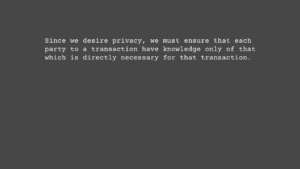Meta is expected to launch a new application called Threads, which will attempt to compete with Elon Musk’s Twitter and decentralised social media platform Nostr. The application will be linked to Instagram, will harvest sensitive user data, and faces regulatory hurdles in Europe and elsewhere.
Meta competes with Twitter, Nostr
The standalone application will be linked to Instagram, and users will be able to port accounts to the platform.
However, there’s a catch. Threads will collect data from users’ phones, including health data, financial information, location data, purchases, and browsing history, and port user data when they sign up using their Instagram credentials. In other words, besides breaching every data protection law under the sun, the Meta-application appears to be yet another leap into Zuckerberg’s vision of the future, where privacy does not exist.
Mark Zuckerberg says he’s not thinking about monetization of users on his Twitter clone, Threads, but that’s a lie. His business model is selling our data to advertisers. Threads has near zero privacy. It knows our location, “Health & Fitness,” “Financial Info,” “Sensitive Info” pic.twitter.com/BusczYqaIG
— Michael Shellenberger (@shellenberger) July 6, 2023
Threads’ parent company, Meta, makes its money from tracking and profiling users to sell their attention via behavioural advertising techniques and microtargeting. This has resulted in the creation of a highly addictive social media experience which has been implicated in increasing teen suicides, among other unhealthy behaviours.
The app store description says Threads is “Instagram’s text-based conversation app,” where users can “say more.” “Threads is where communities come together to discuss everything from the topics you care about today to what’ll be trending tomorrow,” it said.
However, with popular text-based platforms like Twitter, Reddit, and the rapid rise of uncensored messaging boards on Telegram and elsewhere, it’s unclear whether there’s room for a restrictive text-based conversation app with even more built-in surveillance and hostile user-policies.
Beyond that, the onset of Nostr, a decentralised, censorship-resistant open-source protocol directly addresses root problems stemming for traditional social media platforms such as Facebook and Instagram, both of which are heavily censorious.
Meta platforms rife with censorship
As covered by the Brownstone institute, a US-thinktank, the current US administration has been “colluding with social media to censor any content on social media platforms” in regards to “any content that questions, challenges, or contradicts the government’s covid policies.”
This has led to blanket suppression of information regarding covid-19 policies, mRNA vaccine injuries, abnormally high annual deaths since 2021, and a growing body of disconcerting evidence as to the cause of these incidents, which Meta fact checkers have routinely suppressed. This blog has also been subjected to censorship on Meta platforms, for ‘going against community standards’, with no recourse or specifications of the supposedly violated guidelines.
Over a couple of years, the unholy alliance between federal and private sector tech. and social media giants has increasingly been brought into the limelight in tandem with increasing censorship, with legal complaints detailing hundreds of pages of the ongoing unlawful enterprise.
Meta’s censorship is global.
For example, Facebook’s popularity in Vietnam has been a point of contention. As covered in the Democrat-leaning Washington Post, Meta has adopted an internal list of Vietnamese Communist Party officials who should not be criticised on Facebook. Meta stands accused of routinely censoring dissent and allowing those seen as threats by the government to be forced off the platform, according to former Meta employees, human rights groups and industry observers.
As reported by the dailycaller, in May 2023, Meta’s Shareholders rejected a proposal to report on government censorship requests at the tech giant’s annual shareholder meeting, suggesting that the platform is a willing participant in censoring free speech on its platforms.
Meta’s public talk about its commitment to ‘transparency’ appears to be more fluff than substance. So why would Meta’s Threads be any different?
Join the telegram channel for updates, charts, ideas and deals.
Did you like the article? Share it!


